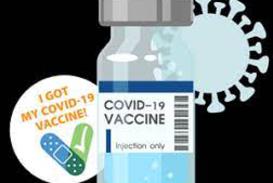Healthcare Medical Pharmaceutical Directory.com
Contract Research Organizations - CROs
Business Trends...
- Contract research organizations will thrive on another solid year of innovation and increased revenue in 2021 driven by the COVID-19 pandemic plus other pharmaceutical and biotech complex research initiatives
- New complex drugs, post-approval monitoring and clinical trials data to earn new FDA indications are CRO moneymakers
- Scroll down to learn strategic insights about contract research organizations and government research resources
... Two archive presentations on Health Economics Outcomes Research (HEOR) and Comparative Effectiveness Research (CER), explore the resources below ...
Contract Research Organization ( CRO ) Market Sector Overview
The top 10 CROs hold more than 50% of the market. This is expected to increase over the next few years in response to fluctuating R&D productivity and competition among the key CRO customer entities. 2021 will see increasingly advanced work done that is aligned with gene therapies, monoclonal antibodies, COVID-19 antivirals plus vaccines and other novel biotherapy product development. By 2022, the worldwide CRO market is estimated to be worth over $45 billion.
CVS Health (NYSE: CVS) may reset the balance of power in clinical trials in the CRO healthcare industry vertical
In June of 2021 CVS Health launched it Clinical Trial Services business unit. The company will be a competitive innovator in pharmaceutical and medical device clinical trial management. They will be able to deploy the assets of these and other CVS business units to compete in the clinical trials business sector:
- More than 9,900 CVS retail pharmcies
- Over 1,100 Minute Clinics
- Coram CVS Specialty Infusion Serivces
CVS Health Clinical Trial Services will actively recruit patients for clinical trials and administer clinical them. They will further enrich their services with various types of reporting and data analysis. Pharmaceutical and medical device companies will use this data to evaluate and further develop their products prior to submission to the FDA.
It is also foreseeable that CVS Health Clinical Trials will partner with other CROs on clinical trial projects involving recruitment for and administration of clinical trials.
CRO Role Against Coronavirus nCoV-19 (COVID-19)
The new new ICD-10 emergency code established for COVID-19 by the World Healthcare Organization (WHO) is:
- U07.1, 2019-nCoV acute respiratory disease.
In healthcare crises such as COVID-19, CROs have pivotal roles in combating newly-discovered pathogens and have been issued formal directives and guidelines from the CDC as they support COVID-19 countermeasures:
- Conducting experiments and tests on pathogens to further determine its characteristics
- Orchestrating multiple tests and laboratory exercises using existing therapies and their activity against a newly found pathogenic threat
- Culling data, developing reports and devising new tests to compare other pathogens to COVID-19 and conducting disease modelling and other simulations for comparative and learning purposes
- Supporting the development of new treatments being championed by biotech and pharmaceutical companies or government healthcare agencies and other institutions; in the case of COVID-19 these could be new antiviral oral, nasal or injectable medications or new vaccine solutions
- Ongoing monitoring of existing or new treatments being used against COVID-19 or other disease threats to assess continued effectiveness and any signs of resistance a pathogen may form against a treatment
Access the Johns Hopkins Coronavirus Resource Center here that was produced by their Center for Systems Science and Engineering (CSSE). It features ongoing updates of accurate and objective data on COVID-19 plus a global map featuring urban, suburban, rural, regional and continental patient case concentrations and other factual information.
COVID-19 data generated by European healthcare and government authorities can be accessed by clicking here.
For further clinical and commercial insights, read this article that sets the stage for an escalation of new business in 2021 for CROs "2020: A Robust Year For Contract Research Organizations".
CRO Mergers and Acquisitions Leading To Consolidation In the Sector
A series of smaller scale acquisitions have been in play in the CRO sector since 2019 following a string of large scale deals that took place between 2015 and 2018. CROs of all sizes are seeking to bolt on other companies, not necessarily competitors, to diversify the types of services and healthcare industry sectors they can provide services in. Charles River bought MPI for $800 million in 2018. LabCorp. announced in July, 2017 it was acquiring Chiltern for approximately $1.2 billion. Parexel was acquired by Pamplona Capital Management (a private equity / financial investment company) in mid-2017; the deal was valued at approximately $5 billion.
In early May, '16 IMS Health extended an offer to acquire Quintiles for $9.2 billion (the new, combined organization is now known as "Iqvia". The new combined entity is comprised of 50,000 employees with exceptional healthcare data capabilities in commercial and clinical applications -plus enormous clinical research resources for pharma, device and other healthcare industry stakeholders. WuXi, China's largest CRO, went private in a $3.3 billion dollar deal in 2015.
CRO Capabilities and Services
An array of services is provided by contract research organizations. They vary on the size and scope of the CRO and typical industry sectors they service and where they may want to build or reduce their business focus and laboratory asset resources towards. CROs work in these and other areas of clinical and product research & development:
- Bio-analytical services and testing
- Cell and genetic chemistry
- Clinical research and study design consulting and management
- Competitive product analysis, bioequivalency testing
- Consumer, patient, medical professional complaint testing and evaluation
- Drug discovery and formulation modelling solutions
- Drug recall batch analysis and assistance
- Manufacturing quality control ( production startup, maintenance, complaint response or recall )
- Mass general pathology service support for research testing
- Molecular imaging and radiochemistry
- Post-launch additional indication expansion studies
- Post-launch product surveillance and quality control evaluation
- Product development compiling and analysis of historical data
- Routine primary laboratory services
- Statistical data analysis and data management
- Toxicology studies
CRO Business Trends And Demands Of Pharmaceutical And Medical Device Manufacturers Plus Regulators
- To reduce research & development costs, drug companies have outsourced greater portions of these functions to CROs to avoid inherent fixed costs of maintaining facilities and ongoing costs of compensating full time staff.
- The FDA is seeking deeper, more intricate data sets to base their approvals on, CROs have increased their clinical and analytical management resources to conduct more advanced, more introspective trials with better reporting.
- As pharmaceuticals become more complex (self-injectable therapies, biotech drugs, biosimilars, advanced oral agents) and medical devices more intricate, manufacturers are required to have more stringent production control processes in place, along with total quality assurance monitoring and advanced reporting, to meet approval standards.
- More companies are utilizing CROs in post-approval monitoring surveillance roles to satisfy FDA requirements, upping their game in ongoing quality control throughout the product lifecycle including variations in reported side effects, product quality and other measurable outcomes
- Pharma manufacturers are seeking the maximum number of indications for their molecules which enables them to get wider clearance for use by payers which generates more revenue; ongoing research drives these initiatives.
- As brand drugs go generic, brand manufacturers seek ways to develop variations of an existing brand formulation to develop a new product which will qualify for new patent exclusivity and provide a pathway for the older drug formulation's patients to be retained through migrating them to the new therapy
- Generic drug producers are continually expanding their portfolios of products and rely on their own as well as contract research organization laboratories to develop bonafide copies of brand formulations to market once their patents expire
- To bolster the foundation upon which to make clinical / promotional claims, drug companies are more closely scrutinizing data in earlier stages of development for positive attributes which lend themselves to more marketing applications, CROs are responding to this with more revealing data sets.
- Increasingly, CROs are being actively engaged by pharma for actual trial design advice and other consultation as the CRO's have substantial experience derived from developing an array of molecules in different therapeutic classes and monitoring their quality levels.
- "Personalized" treatment paths of oncology demand unique clinical trial design and monitoring. The individualized approach to oncology treatment drives exploration and innovation; it has the potential to revolutionize treatment protocols and achieve positive outcomes.
Clinical and Commercial Challenges for Contract Research Organizations
Clinical research organizations have enormous business demands on their plates now and more to come. The FDA deploys Compliance Program Guidance Manuals (CPGM) to manage its field operatives on the inspectional and investigational activities regarding CROs and other research stakeholders. Their bioresearch monitoring activities, policies and regulations ensure the protection of research subjects and the integrity of data submitted to the agency in support of a drug approval application or other approval and licensing requests. This is in addition to municipal, State, Federal and other government agency oversight to reinforce all necessary measures required for accurate data and clinical research best practices for prescription drugs and other medical products.
To be competitive, CROs need to be able to deliver more advanced means of analysis and monitoring while keeping up with increased regulatory requirements and the changing, higher level requirements of clients and the industry. The growing sophistication of therapies needed to treat more challenging conditions requires a research infrastructure that allows for complex analysis to be conducted at an accelerated pace. If a product is approved, there is frequently additional needs for post-approval surveillance and added indication exploration. These are revenue opportunities for CROs but they require additional organizational resources to execute.
Professional Experience and Facility Assets
Startup and established companies working with CROs are seeking those which have direct experience in the types of products they are developing. Some of the reasons for this include advisement in setting up clinical trials, experience in managing the process efficiently and having familiarity with the data sets required. Having staff and facilities at the ready is another important consideration as once a company decides to advance its testing and require more specialized and /. or larger scale clinical research support, they do not want to have to wait for a CRO to staff up or acquire equipment to conduct the research exercises. Much of this drills down to time and cost efficiencies. CROs are not inexpensive to work with and speed to discovery means accelerated time to market to achieve commercial success faster.
CLIA-Certification
The Clinical Laboratory Improvement Amendments (CLIA) of 1988 are United States federal regulatory standards which apply to all clinical laboratory testing performed on humans in the United States with the exceptions of clinical trials and basic research. Clinical Laboratory Improvement Amendments (CLIA) regulate laboratory testing and require clinical laboratories to be certificated by their state as well as the Center for Medicare and Medicaid Services (CMS) before they can begin analysis operations of human samples for diagnosis. CLIA regulations set quality standards for laboratory testing performed on specimens from humans (blood, body fluid, tissue) for diagnosis, assessment of health, prevention and treatment of disease.
College of American Pathologist (CAP) Certification
The CAP Certification program is another benchmark of compliance, operations and quality performance coveted by hospital, health system and other mission critical research laboratory enterprises. It helps clinical researchers of all kinds navigate new developments and certify a high level of performance with:
- Laboratory medicine
- New technology
- Regulatory standards
It encompasses the pivotal elements necessary to align with ISO 15189 requirements.
The Centers for Medicare and Medicaid Services (CMS) have endorsed the CAP Laboratory Accreditation Program by granting it "deeming authority". This allows for CAP inspection in lieu of a CMS inspection. In addition, the CAP retains deemed status with the Joint Commission, United Network for Organ Sharing, the National Marrow Donor Program, the Foundation for the Accreditation of Cellular Therapies, and many US state agencies.
Moving Forward
As the CRO marketplace consolidates, each potential client account becomes more valuable as their impact on business is larger based on win or loss --plus there are less opportunities to win business in their category to fill a gap as a result of client loss. The products CROs utilize can be as mundane as a pipette or as advanced as clinical diagnostic and other analytical instruments costing millions of dollars. For this reason pharmaceutical manufacturers, biotech companies and other healthcare product firms and medical research companies seek the support of CROs to work with them versus investing their own funds into capital equipment assets. 2021 promises to be a year of clinical innovation and commercial opportunities for contract research organizations worldwide.
For diagnostic and analytical equipment manufacturers, the selling cycles can be long ( easily 6+ months or even more than 1 year ) and require the services of leasing companies or other financial support to secure equipment sales. Depending on the company, testing involved and host country, some CRO services can be transacted offshore however the vetting process must be rigorous to assure time efficient CRO vendor support, regulatory compliance and clinical / statistical accuracy can be established and maintained throughout the relationship.
Pharmaceutical and other chemical companies ( chemistry products, solutions, reagents, bioagents, etc.) must be able to consistently comply with CRO standards which includes specific batch lots, lengthy production expiration dating and other requirements. Any gaps in supply or errors in product batch selection, dating, shipping can result in lab testing setbacks, clinical trial delays and other issues which the CRO may not be able to overcome based on their clients' budgets and timelines without incurring significantly greater costs.
... This unit covers the Contract Research Organizations (CROs) market sector; scroll down for a list of the largest Contract Research Organizations ( CROs ) and access to CDC CLIA-Certified Laboratories plus legacy Health Economics Outcomes Research (HEOR) and Comparative Effectiveness Research (CER) presentations ...
... This CDC resource provides demographic information about CLIA-Certified Laboratories, including CLIA number, facility name, address and type of CLIA certificate ...
... Leading Contract Research Organizations listed alphabetically...
...The Frederick National Laboratory for Cancer Research (a Federally Funded Research and Development Center - FFRDC - sponsored by the National Cancer Institute - NCI) is managed by Leidos Biomedical Research and orchestrates basic, translational and clinical science centered cancer/oncology, HIV/AIDS and infectious diseases ...
... FDA’s Center for Drug Evaluation and Research (CDER) bioresearch monitoring website ...
...National Biodefense Analysis and Countermeasures Center (NBACC) website...
... National Center for Biotechnology Information (NCBI) BioProject ...
... CDC FluLabSurge Pandemic Modelling Resource Tool ...
... Agency for Healthcare Research and Quality ...
...National Institute of Health Stem Cell Information ...
... U. S. National Library of Medicine ClinicalTrials.gov ...
... Organ Donor and Transplantation Procurement Network ...
... World Health Organization Global Knowledge Base
on Transplantation (GKT) ...
... A major competitive shift in the CRO sector as Thermo Fisher Scientific buys PPD with $20.9 billion investment ...
... Environmental Protection Agency ...
...A healthcare industry business intelligence resource with marketing strategy insights for pharmaceutical and medical device manufacturers, healthcare provider organizations, medical software and technology enterprises, patient care service companies and management consulting firms spanning a global community of users from 50+ nations...
,,, College of American Pathologists (CAP) Certification ...


